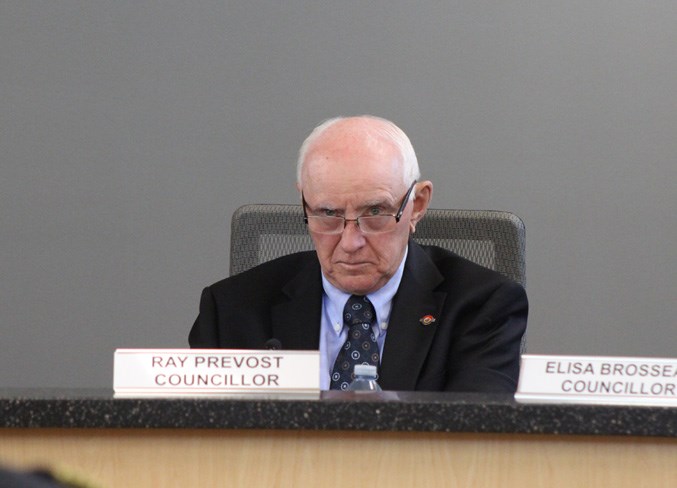The 2020 budgets have the Town of Bonnyville going back to the drawing board to erase an overall $6.74-million deficit.
The initial drafts of the 2020 operational and capital budgets were presented to council during their regular meeting on Tuesday, Oct. 22.
Town administration offered potential ways of addressing the shortfalls, requesting feedback from council.
Operational budget
The 2020 operational budget is sitting with a deficit of over $1-million, with revenues projected at $21.77-million and expenses around $22.79-million.
Assistant CAO Bill Rogers noted it's not uncommon to be in the red at this stage in the process.
"We go back to the drawing board, look at accommodations of savings, possible use of transfer funds, and some other creative methods to make that go away," he explained. "We're going to continue to do that this year, and try to have something for you... by Dec. 31."
The town is forecasting a near $942,000 drop in revenue in 2020.
Among the areas expected to see a significant decrease are tax penalties, which are anticipated to come in $25,000 less than last year for a total of $225,000 due to the new multi-family subclass bylaw. Reserve transfers for projects are seeing a $323,000 decline for a total of $1.63-million, and $252,000 less in local improvement revenue for the Centennial Centre. The municipality won't be receiving the Municipal Cannabis Transition Program grant in 2020, which was $40,000 in revenue in 2019.
While less dollars are coming in, overall, the town's operational expenses are estimated to increase by close to $75,000.
The implementation of Next Generation 911 saw contracted costs for 911 services jump by just over $39,000 to roughly $116,961.
The town has also included $25,000 in order to conduct a census in 2020.
The cost for streetlight power is anticipated to see an over $20,000 increase to $420,000 next year.
A new line item in the 2020 operational budget is $500,000 for purchasing water from Cold Lake, due to the expected completion of the regional waterline in the spring.
Administration offered suggestions that could reduce the shortfall by $126,500, including eliminating the transfer to reserves for the administration building, and deferring reservoir and pump house repairs. There was an estimated balance of $1.3-million available in the general operating reserve that could also be put toward the deficit.
Capital budget
Total revenue of $4.96-million and expenditures of just over $10.69-million left the 2020 capital budget with a deficit of $5.72-million.
Revenues dropped roughly $11.09-million from 2019 to $4.96-million in 2020. One item that saw a major reduction was the provincial and federal capital grant funds, which administration projected a decrease of around $639,400 from 2019 to $1.15-million in 2020.
The Bonnyville Swimming Pool saw a $1.18-million hike to the budget for the “must do” items identified in the infrastructure engineering study and needs assessment.
The town is set to spend a total of $1.87-million on public works streets and paving, which includes $240,000 for work on commercial alleys and main street and a cross walk to be installed on 50 Ave by the A&W for $200,000. The annual overlay patching program is anticipated to cost $1.3-million.
When it came to infrastructure replacement, which overall was sitting around $2.96-million, the town included $25,000 in order to purchase lights, cameras, and garbage receptacles for the parking lot located beside Notre Dame High School. Work on the hospital alley and 47 Ave., from 48 St. to 42 St. is also anticipated for 2020 and rang in around $2.13-million.
The staging area washroom and warm up shack has a price tag of $150,000. The town also included $30,000 in the budget for a fine arts society feasibility study, which would be cost shared with the MD of Bonnyville.
When it came to projects that could be deferred, Coun. Elisa Brosseau suggested the budgeted $1.5-million library expansion.
“It’s near and dear to my heart, and I would like to see it expanded, but if that’s something that we’re not close to talk about right now... then it can be (pushed).”
One of the solutions offered by Coun. Ray Prevost was a municipal tax increase.
“Last year, I wanted to raise the taxes a bit... and we ended up with a zero tax increment,” noted Prevost. “I don’t see how we’re going to do that this year, so council has to agree at a two per cent, or whatever the case may be, and turn this back to administration, who will meet with management staff, and bring back some sort of recommendations.”
Mayor Gene Sobolewski disagreed with a tax hike, and requested administration look into other means of addressing the shortfall, such as eliminating projects that aren’t “must dos” in 2020.
“If we can’t avoid a tax increase, that’s fine, but I think what we have to do is be very careful as to what we’re going to do with it because it’s our businesses that are going to be absorbing a heck of a lot more than what our residences do in the form of a tax increase,” he expressed.
Second drafts of both budgets will be presented to council during their regular meeting on Nov. 26 before the open house in council chambers on Dec. 3 at 6 p.m.



